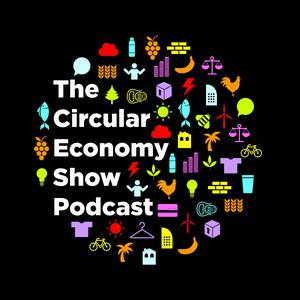
The Circular Economy Show Podcast
Pippa Shawley
The Ellen MacArthur Foundation welcomes you to The Circular Economy Show, a podcast about a new way to design, make, and use things, and how we can build an economy that's fit for the 21st century.
- 30 minutes 17 secondsWhat should businesses do to scale a circular economy?
How do we move from pilots and beyond the ESG hype bubble to scale the implementation of the circular economy and how do businesses lead in this space? In this episode of the Circular Economy Show, host Seb is joined by Lindsay Hooper, CEO for the Cambridge Institute for Sustainability Leadership (CISL), and Joe Murphy, Executive Lead of the Ellen MacArthur Foundation’s business network.
Together, they’ll explore the insights from CISL’s Competitive Sustainability report and the Foundation’s business network, offering perspectives on the state of the circular economy and related efforts. What will it take to scale? Join us to find out!
Read the full report discussed in this episode: Survival of the Fittest: From ESG to Competitive Sustainability.
21 January 2025, 12:30 am - 15 minutes 41 seconds2024 in review: A year exploring the circular economy
Join Fin, Lou and Pippa from the Circular Economy Show as we look back at a year in the circular economy.
In this episode, the team shares highlights from this year’s show, and talks about some of the moments you might have missed.
Thanks for listening to the Circular Economy Show from the Ellen MacArthur Foundation. Help us grow our audience in 2025 by sharing your favourite episode with your friends and colleagues.
If you’d like to get in touch, email us at [email protected]
Explore the episodes discussed:
Ep 159: How to build a nature-positive circular economy for Europe
Ep 157: Inside the world of industrial symbiosis
Ep 149: Scaling refill and return with GoUnpackaged
We also mentioned our episode with Vincent from Dunia Bora - who features in episode 150: Creating nature-positive nutrition from cacti with Dunia Bora.
Watch the Redesigning Food Series, which Fin mentioned.
17 December 2024, 12:30 am - 17 minutes 35 secondsWhat does it take to scale biomaterials?
In this episode of the Circular Economy Show we discuss Arda Biomaterials' journey of transforming beer by-products into sustainable materials. Brett Cotten, co-founder at Arda, details the company's origins, challenges, and successes, including raising pre-seed investment in 2023 and scaling operations. Amy Tsang from The Mills Fabrica highlights their 360-degree support for innovators, emphasising investment, collaboration, and showcasing technologies. Both discuss the importance of scalability, impact measurement, and the commercial viability of biomaterials, with Brett noting the potential of chemistry-based approaches and Amy highlighting innovative startups including Epoch Biodesign.
If you enjoyed this episode, please leave us a review or a comment on Spotify or YouTube. Your support helps us to spread the word about the circular economy.
10 December 2024, 12:30 am - 33 minutes 18 secondsWhat happened at INC-5? With Ellen MacArthur and Christiana Figueres
In this special episode of The Circular Economy Show, we’re sharing a conversation between Ellen MacArthur and Christiana Figueres from the climate podcast Outrage + Optimism.
Christiana was Executive Secretary of the United Nations Framework Convention on Climate Change from 2010 to 2016, where she oversaw the delivery of the historic Paris Agreement. In this episode, the pair reflect on the outcomes of the INC-5 negotiations for a global plastics treaty, the role businesses play in addressing plastic packaging pollution, and why a global, legally-binding treaty is necessary to address this global challenge.
Listen to episode 165 to find out more about why the INC-5 negotiations matter, or visit the Ellen MacArthur Foundation website.
5 December 2024, 12:30 am - 16 minutes 24 secondsChina, climate, and the circular economy
In this episode, we discuss the Ellen MacArthur Foundation’s latest publication, The circular economy: A 'triple play' solution for achieving China's climate objectives. We’ll explore how adopting a comprehensive circular economy framework can play a pivotal role in achieving both China’s climate and economic goals.
Lei Chen and Seb Egerton-Read highlight the triple play benefits of applying the circular economy in China. These include reducing greenhouse gas emissions in line with the country’s climate goals, securing the supply of critical raw materials for the renewable energy transition and transition to electric vehicles, and the increased resilience of China’s economy.
Head over to our website to read the full report mentioned in this episode.
If you enjoyed this episode, please leave us a review or a comment on Spotify or YouTube. Your support helps us to spread the word about the circular economy.
26 November 2024, 12:30 am - 16 minutes 19 secondsPlastic pollution: What is INC-5 and why does it matter?
At the end of this month in Busan, Korea, INC-5 will take place. For the fifth and final time, the United Nations international negotiating committee will reunite to create a legally binding global treaty that ends plastic pollution.
In this episode, Marta Longhurst, the Ellen MacArthur Foundation’s Global Treaty Manager, tells us what opportunities a well designed treaty could unlock to tackle the world’s plastic waste crisis.
If you enjoyed this episode, please leave us a review or a comment on Spotify or YouTube. Your support helps us to spread the word about the circular economy.
19 November 2024, 12:30 am - 20 minutes 49 secondsCan the circular economy help bridge the climate adaptation gap?
The circular economy can be a powerful climate mitigation strategy. But what about the other side of the climate action coin? In this episode, we explore the connection between circular economy activities and climate adaptation outcomes.
If you enjoyed this episode, please leave us a review or a comment on Spotify or YouTube. Your support helps us to spread the word about the circular economy.
5 November 2024, 12:30 am - 23 minutes 40 secondsDecoding durability in a circular economy: more life, more memories
When we talk about durable materials, products, and services, what do we really mean? This episode unpacks the physical and emotional dimensions of durability and explores how this key design principle can help set circular business models up for long-term success.
Would you like to know more about Back Market, the circular business model example mentioned in this episode? Listen to our episode 126: Changing the way we buy and use technology with Back Market.
If you enjoyed this episode, please leave us a review or a comment on Spotify or YouTube. Your support helps us to spread the word about the circular economy.
29 October 2024, 12:30 am - 20 minutes 30 secondsSustainability and the circular economy: what’s the difference?
Is the circular economy just another form of sustainability?
In this premiere episode of the Circular Curious season, Emma Elobeid and Lou Waldegrave explore the key overlaps and core differences between sustainability and the circular economy and discuss some of the common pitfalls in conflating these two vital yet distinct practices.
Would you like to learn more about the key ideas that form the circular economy? Head to our website for more information.
If you enjoyed this episode, please leave us a review or a comment on Spotify or YouTube. Your support helps us to spread the word about the circular economy.
22 October 2024, 12:30 am - 50 secondsNew season: Circular Curious
Ever wondered what the difference is between sustainability and the circular economy? Or whether circular economy activities can help us adapt to the effects of climate change at the same time as tackling it at source? Have you ever considered what we really mean by designing for durability?
In this season of the Circular Economy Show for the circular curious, we’ll be talking around the edges, peeling off some layers, and unravelling some common misconceptions around the circular economy – at both an ideological level and in implementation terms too.
15 October 2024, 12:30 am - 14 minutes 37 secondsWhat’s in your Soho bag? Unpacking the role of collaboration in circular product design
In this episode of The Circular Economy Show, we uncover the power of collaboration in scaling the design of products that are fit for a circular economy. Host Pippa Shawley is joined by Megan Dawson-Elli, Product Sustainability Manager at Tapestry, and Steven Bethell, Co-founder of Bank and Vogue, to discuss their groundbreaking partnership that led to the creation of Coach’s sellout Soho bag. Learn how post-consumer denim, innovative design, and a shared vision resulted in a beautiful product and a life-cycle assessment showing that the repurposed denim had up to a 95% reduction in water usage and up to 80% less carbon emissions than conventional first use denim. Tune in to find out how circular design is fundamental to both circularity and commercial success.
Learn more about Tapestry and Bank & Vogue.
If you enjoyed this episode, please leave us a review or a comment on Spotify or YouTube. Your support helps us to spread the word about the circular economy.
1 October 2024, 12:35 am - More Episodes? Get the App
Your feedback is valuable to us. Should you encounter any bugs, glitches, lack of functionality or other problems, please email us on [email protected] or join Moon.FM Telegram Group where you can talk directly to the dev team who are happy to answer any queries.
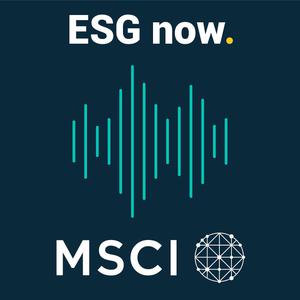 ESG now
ESG now
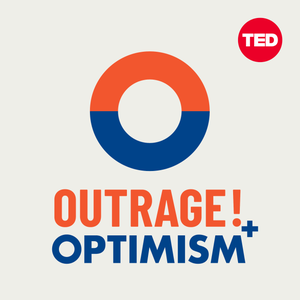 Outrage + Optimism
Outrage + Optimism
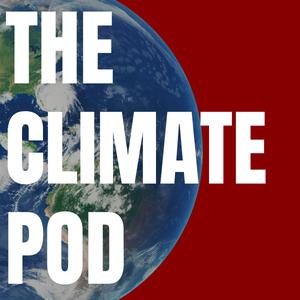 The Climate Pod
The Climate Pod
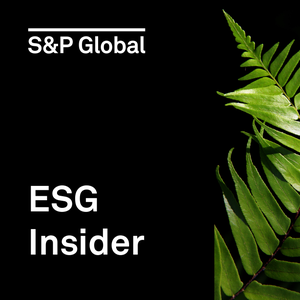 ESG Insider: A podcast from S&P Global
ESG Insider: A podcast from S&P Global
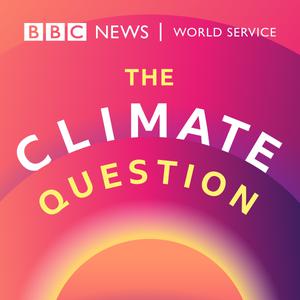 The Climate Question
The Climate Question
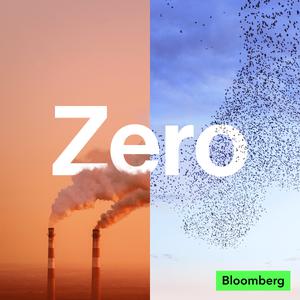 Zero: The Climate Race
Zero: The Climate Race